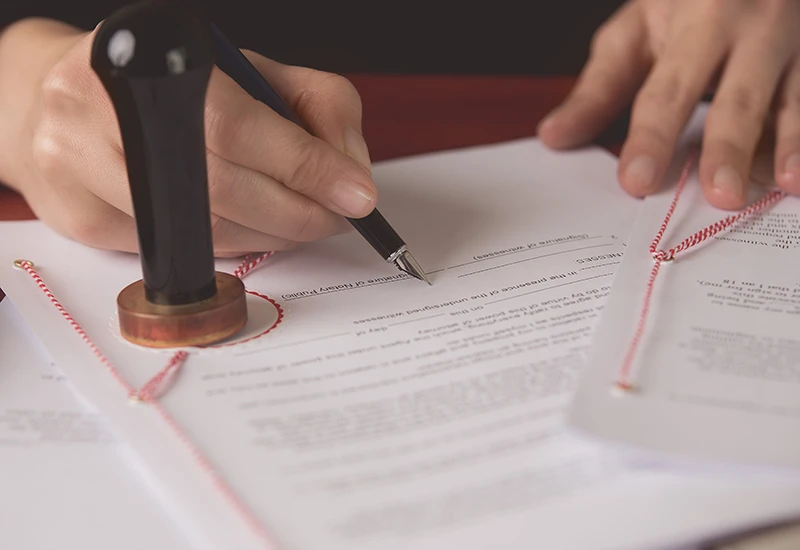What Are the Different Types of Notary Services?

Notarization is the official process of verifying that a signature on a document is legitimate. This simple act prevents fraud and keeps legal transactions running smoothly. But like most things in law, there’s more than one way to do it. Here’s a summary of the various types of notary services and how to choose the right one.
Acknowledgments
An acknowledgment ensures that the signer is indeed who they claim to be and that they have signed the document willingly. Commonly used for documents involving significant assets, such as real estate, trusts, or loans, this process requires the signer to appear before the notary, confirm their identity, and acknowledge their signature. The document may be signed prior to meeting the notary as long as the signer declares that the signature is theirs.
Jurats
A jurat notary is employed when a signer must swear or affirm that the contents of a document, such as an affidavit or deposition, are true. This involves the signer appearing before the notary, signing the document in the notary’s presence, and taking an oath or affirmation of truthfulness.
Oaths & Affirmations
Sometimes, a notary’s role is to administer a verbal oath or affirmation without any accompanying document. This notarial act involves the individual making a solemn pledge of truthfulness or commitment to a duty, such as during court testimony or when assuming a public office. The difference lies in the wording: an oath invokes a higher power, while an affirmation relies on personal honor.
Copy Certifications
In a copy certification, a notary verifies that a copy of an original document is a true and accurate reproduction. This process involves comparing the original document to the copy and certifying its authenticity. Not all jurisdictions permit notaries to perform copy certifications, and certain documents, like vital records or court documents, are often excluded.
Signature Witnessing
Signature witnessing is a type of notarization requiring the signer to appear before the notary and sign the document in the notary’s presence. The notary then verifies the signer’s identity and witnesses the signing. This type of notarization is often used for documents where the mere act of signing needs verification, separate from the contents of the document.
Electronic Notarization
Electronic notarization (eNotarization) involves notarizing documents digitally. The notary uses an electronic signature and seal on a digital document, but the process happens while the signer and notary are together in person. eNotarization is convenient, but check compliance with state laws and regulations before pursuing this option.
Remote Online Notarization
Remote Online Notarization (RON) allows signers and notaries to meet virtually using audio-visual technology. The notary verifies the signer’s identity remotely and notarizes the electronic document during the online session. RON is gaining acceptance in many jurisdictions, providing a convenient option when in-person meetings aren’t feasible. Still, it’s crucial to follow state laws governing different types of notary.
Get it Notarized with Talty Court Reporters
At Talty Court Reporters, we utilize the latest technology to deliver the very best results in your legal case. Turn to us for trustworthy and time-efficient notary services, along with top-quality court reporting, video and audio conferencing, remote depositions, and much more. For additional information about our services or to request a cost estimate, please contact us today.